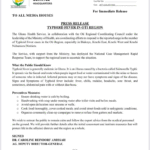Justice Minister Mmamoloko Kubayi has recently announced that disciplinary proceedings are underway against the department’s director general, with the deputy director general for information and communication technology being suspended. This action comes in response to the delayed start of the inquiry into corruption within South Africa’s criminal justice system.
The chairperson of the inquiry, retired Constitutional Court Justice Mbuyiseli Madlanga, revealed that the hearings, originally set to begin on September 1st, have been postponed indefinitely due to the department’s failure to provide the necessary infrastructure. Madlanga cited collapsed procurement processes as the primary reason for the delay, which could potentially hinder President Cyril Ramaphosa’s directive for the inquiry to produce its first interim report within three months.
Despite these challenges, Minister Kubayi emphasized that the Madlanga commission has already begun preliminary work, including interactions with witnesses. She expressed a commitment to ensuring that the commission starts its work without further delay and to strengthening the operational efficiency of the department to prevent similar setbacks in the future.
However, the Economic Freedom Fighters (EFF) have criticized the delay, claiming that it validates their previous warnings that the inquiry was designed to fail. They allege that the establishment of the commission was merely a political ploy to placate public concerns without any genuine intention of holding accountable those implicated in corruption allegations.
The EFF specifically targeted Minister of Police Senzo Mchunu, who has been placed on special leave pending the outcome of the inquiry. They argue that Mchunu continues to enjoy the benefits of his position despite not fulfilling his duties, calling for his removal from cabinet.
Former president Jacob Zuma has also launched a legal challenge against the inquiry, questioning its legality and suggesting that it is being used selectively to target political opponents while shielding ANC insiders from scrutiny.
In response to these developments, the EFF has pledged to continue pursuing accountability through an ad hoc parliamentary committee on law enforcement. They emphasize the importance of parliament as a forum where accountability cannot be avoided through bureaucratic delays.
As the situation continues to unfold, it is clear that the inquiry into corruption in South Africa’s criminal justice system is facing significant obstacles. The actions taken by Minister Kubayi and the responses from political parties reflect the complex and contentious nature of addressing corruption at the highest levels of government. The Importance of Mental Health in Today’s Society
In today’s fast-paced and stressful world, the importance of mental health cannot be overstated. With increasing workloads, societal pressures, and the constant bombardment of information from social media and news outlets, it is more important than ever to prioritize our mental well-being.
Mental health is just as important as physical health, yet it often goes overlooked or dismissed. However, neglecting our mental health can have serious consequences, not just for ourselves but for those around us as well. Mental health issues can lead to a decline in productivity, strained relationships, and even physical health problems.
One of the biggest challenges in addressing mental health issues is the stigma that still surrounds it. Many people feel ashamed or embarrassed to seek help for their mental health problems, fearing judgment or discrimination. This stigma must be broken down so that individuals feel comfortable seeking the support they need.
There are many ways to promote good mental health, such as practicing self-care, seeking therapy or counseling, maintaining a healthy work-life balance, and connecting with others. It is important to prioritize mental health in our daily lives and to recognize when we need to take a step back and focus on our well-being.
In today’s society, it is more important than ever to prioritize mental health. By taking care of our mental well-being, we can lead happier, healthier lives and create a more compassionate and understanding society. Let’s work together to break down the stigma surrounding mental health and prioritize our well-being.








